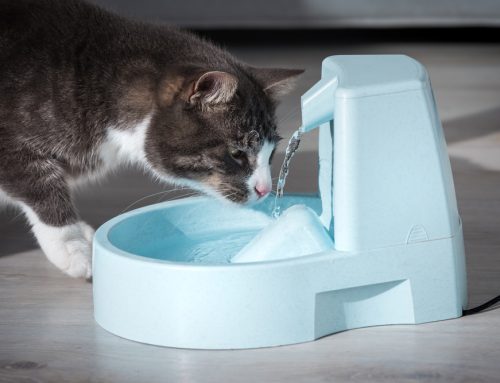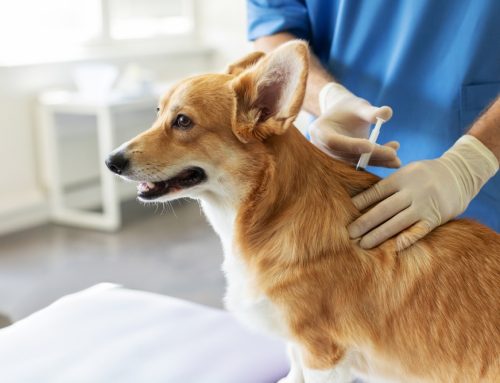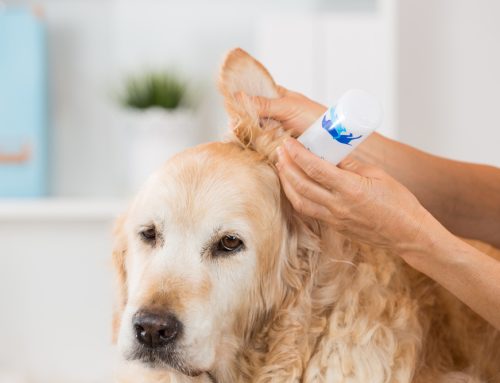Stress and anxiety in pets can significantly impact their well-being, leading to behavioral changes and even health issues. Just like humans, pets experience stress due to environmental changes, separation, loud noises, and routine disruptions. Recognizing the signs of anxiety and taking steps to reduce stress can improve your pet’s overall happiness and health.
At High Point Animal Hospital, we understand how anxiety affects pets and provide expert guidance on behavioral management, enrichment strategies, and medical interventions to help dogs, cats, and small pets feel more secure.
Common Causes of Stress and Anxiety in Pets
Understanding what triggers anxiety in pets is the first step in helping them feel safe and comfortable.
1. Separation Anxiety
Separation anxiety is one of the most common causes of stress in pets, particularly in dogs. Signs include excessive barking, destructive behavior, and house soiling when left alone. Cats can also experience separation-related stress, often demonstrated through excessive vocalization, urination outside the litter box, or overgrooming.
Learn more about separation anxiety in dogs from the ASPCA.
2. Noise Sensitivity and Phobias
Many pets are frightened by loud noises such as fireworks, thunderstorms, vacuum cleaners, or construction sounds. This fear can lead to panting, trembling, hiding, or even attempts to escape.
Explore noise aversion in pets from AAHA.
3. Changes in Environment or Routine
Moving to a new home, introducing a new pet or baby, or altering daily routines can create uncertainty and stress in pets. Cats, in particular, are highly sensitive to environmental changes and may react by withdrawing, hiding, or refusing to eat.
4. Conflict with Other Pets
Tension between pets can lead to chronic stress, particularly in multi-pet households. Cats may become territorial, leading to spraying or aggressive behavior, while dogs may exhibit signs of fear or resource guarding.
For tips on reducing tension among cats, visit AAHA.
5. Boredom and Lack of Enrichment
Without adequate mental stimulation and physical exercise, pets can become frustrated, anxious, or destructive. Enrichment is especially important for high-energy dog breeds and indoor cats.
Explore DIY enrichment toys for your cat.
Check out these DIY cognitive dog toy ideas.
Signs of Stress and Anxiety in Pets
Behavioral Symptoms
- Excessive barking, whining, or meowing
- Destructive behaviors (chewing furniture, digging, excessive scratching)
- Restlessness, pacing, or hiding
- Aggression toward people or other pets
- Repetitive behaviors, such as tail chasing or overgrooming
Physical Symptoms
- Excessive shedding or hair loss
- Digestive issues (diarrhea, vomiting)
- Loss of appetite or weight loss
- Panting or drooling (even without exertion)
If your pet exhibits multiple signs of anxiety, it’s crucial to identify the cause and begin treatment before the stress leads to further health concerns.
Helping Pets Cope with Stress and Anxiety
1. Create a Safe and Comforting Environment
- Provide a designated quiet space for your pet to retreat to when feeling anxious.
- Use calming pheromone diffusers (such as Adaptil for dogs and Feliway for cats).
- Maintain a consistent daily routine for feeding, playtime, and exercise.
2. Training and Behavioral Support
- Desensitization training: Gradually introduce your pet to stress triggers in a controlled way to reduce fear.
- Counter-conditioning: Reward calm behavior to create positive associations with previously stressful situations.
- Interactive puzzle toys and games: Mental stimulation helps reduce anxiety-related behaviors.
Learn more about cooperative care techniques for anxious dogs.
3. Exercise and Enrichment
- Daily walks, structured play, and scent games help dogs release nervous energy.
- Cats benefit from vertical spaces, scratching posts, and interactive toys to keep them engaged.
Find DIY enrichment ideas for dogs from the Guide Dogs Organization.
Check out these safe alternatives to common dog chews.
4. Veterinary Support and Medication Options
- Anti-anxiety medications or supplements may be recommended for pets with severe anxiety.
- Pheromone diffusers, calming diets, or prescription medications can provide relief.
- Routine veterinary exams help rule out underlying medical conditions contributing to anxiety.
If your pet’s anxiety is severe or persistent despite environmental changes, schedule a behavioral consultation at High Point Animal Hospital.
When to Seek Veterinary Help
If your pet’s anxiety is causing:
- Self-harm, such as excessive licking, chewing, or pulling out fur
- Loss of appetite or refusal to eat for over 24 hours
- Aggression toward family members or other pets
- Destructive behavior that threatens their safety
…it’s time to seek professional intervention. Our team at High Point Animal Hospital can develop a customized treatment plan for your pet.
Helping Your Pet Live a Stress-Free Life
Addressing stress and anxiety in pets is essential for their long-term health and happiness. Whether the cause is separation anxiety, environmental changes, fear-based triggers, or boredom, taking proactive steps can significantly improve their quality of life.
At High Point Animal Hospital, we specialize in behavioral assessments, enrichment guidance, and anxiety management strategies tailored to your pet’s needs.
Schedule an appointment today to discuss your pet’s anxiety concerns.
Contact us to learn how we can help.







Leave A Comment